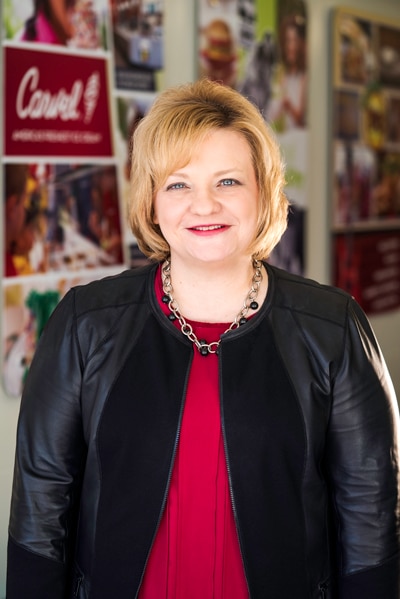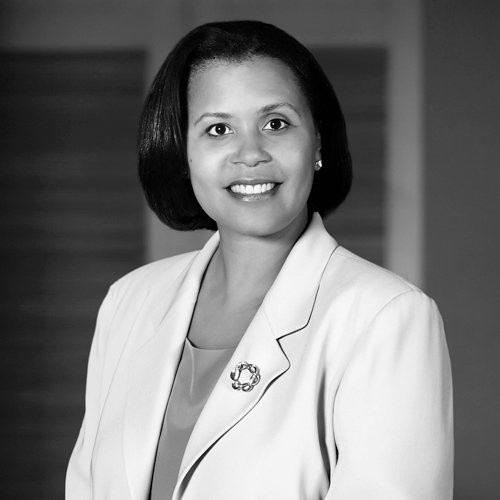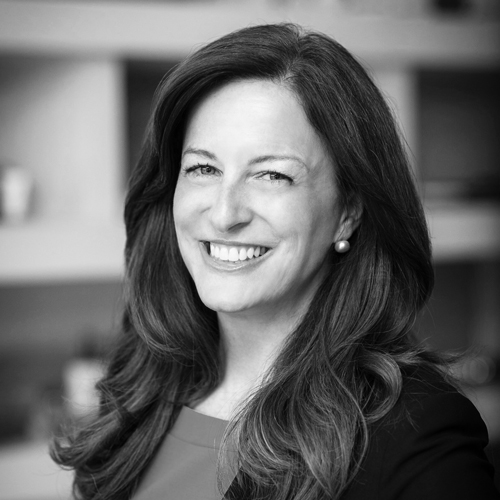
Focus Brands is basically six businesses in one, and you’ve probably heard of each of them. Among their brands are stop-and-nosh staples such as Cinnabon, Moe’s Southwest Grill, Auntie Anne’s, and Schlotzsky’s, and overseeing them all from a legal standpoint is Sarah Powell, executive vice president, general counsel, and secretary.
“With six brands, there is never one day that’s the same as the next,” she says. “And we’re dealing with approximately sixty countries in addition to the US and Puerto Rico, so the business is incredibly varied.”
She’s not kidding. Everything from governance, compliance, and litigation to trademark management, securities, and real estate falls under her umbrella. “I learn something new every day,” she says.
And Modern Counsel learned plenty in a conversation with Powell about Focus Brands’ recent securitization of an $800 million bond, its office’s collaborative culture, and Powell’s work launching a company-wide compliance program.
First, can you give a big-picture glimpse of the securitization deal?
Sure, we decided to do an $800 million securitization transaction in the early part of 2017. There were numerous benefits for us, the primary one being that it allowed us to secure a fixed interest rate on $600 million of our debt. We had a variable interest rate before that, so it helped mitigate our risk with regard to the potential rise of interest rates. And, it also helped us secure funds to help finance future strategic initiatives and potential future acquisitions.
What different parties came together on this? And how did everyone work together to close the deal?
The CFO and I were particularly involved in reviewing and negotiating the securitization documents along with our outside counsel. We finalized everything to get the best deal we could for the company. And then my team and I were involved in completing the due diligence requirements of the bank regarding thousands of franchise agreements—as well as licensing and supplier agreements to which our brands are party, so we had to keep excellent records.
And did you all keep excellent records?
Absolutely. All the time we’d spent to make sure everything was done correctly in the past paid off. Several teams in the company worked together to get all the information to the banks. The legal and finance teams were the primary groups that got together, had weekly meetings, and then reached out to other departments in the company for information as we needed it. There was a lot of internal collaboration and cooperation between legal and finance and many other departments.
How else is the securitization affecting the company?
The CFO and I also worked together to determine and finalize a restructure of the whole company. We had actually streamlined our structure before the securitization, but with it, you have to do a bit more restructuring to accommodate the new kind of debt you have in place.
That’s a lot of teamwork. Would you say Focus Brands fosters a collaborative culture?
Yes, we are very, very collaborative within the group. My favorite part of this job is definitely the people. We have six brands, and the brands each try to collaborate with one another, as do the individual departments. We even have a collaborative building here, with an open office plan, to assist with that collaboration.
Talk about the company-wide compliance program that was recently implemented. How were you and your team involved?
Our CEO is very much in support of ensuring the company has an enterprise risk-management program in place, so we actually conducted an enterprise risk-management study after I got here—with the help of a third party—and identified a list of the most significant risks that we felt were faced by our company.
Where did you go from there?
We formed a compliance committee that consists of a cross-functional team of members from nearly every department in the company. That group formulated risk-mitigation plans for the risks we identified, and we put policies and procedures in place to make certain the company emphasizes integrity. We put in, for example, a code of business conduct and ethics, a whistleblower policy, and an anticorruption policy, just to name a few.
How has it evolved since its formation?
The compliance committee continues to meet regularly and grow the list of risks and mitigation plans so that we’re constantly updating it. It’s like a living, breathing entity.
And you oversee that program?
I lead the compliance committee with this cross-functional team, but everybody engages in it.
Given that you lead so many initiatives, how would you describe your leadership style?
I feel like my leadership style is open-door and just encouraging people to grow. Every day, I try to empower my team so that they can make decisions on their own and really take some chances. I like to stretch what people can do so that they’re learning new things all the time. That’s what’s really helped me in my career.


